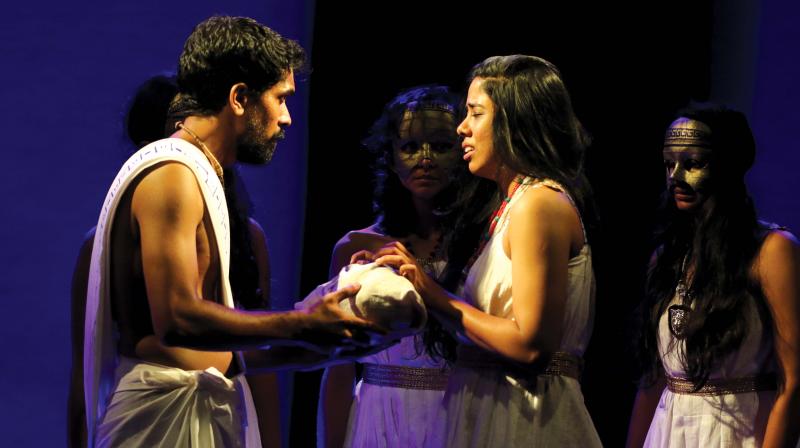Costume drama with substance

Feminism, women empowerment, fighting against a patriarchal society all these are notions we here now in an era where free will and freedom of speech is no more condemned. However, back in 415 BC women stayed at home when the men went to the battle field. In such a situation one can understand how naive women were. Here is a play about The Trojan Women who were left to fend life for themselves after all their men died in the war.
The Trojan women also known as troades in Greek is one of the three famous tragedies based on the Trojan War. Entirely focusing on the plight of the women who suffered the repercussions of the war, Theatre Nisha is set to present an adaptation of the play which is originally written by the renowned Greek playwright Euripides.
Meera Sitaraman of Theatre Nisha and the director of The Trojan Women gives us an exclusive sneak peek on what to expect from the play, she says, “The story is what Euripides wrote in 415 BC. There is no change to the storyline. The play is about what happens after a war. It is the pathos, the angst, and the insecurity that arises when all is lost. Today, these sentiments are prevalent world-over. We are constantly at war and the aftermath hasn't changes in centuries.”
The play narrates the grief of the women of Troy who are the lone survivors of the war. They learn their fates from a Greek messenger. The course of the play reveals what has been decided for each of them, and how they deal with it. The costumes imitate the Greek era and the play is accompanied with live music and an array of instruments are used to create the atmosphere of a burning Troy.
Speaking about what influenced them to choose such a play that comes like a blast from the past she says, “Greek drama is always fascinating, and to be able to perform one as an actor/director is like a rite of passage. The relevance of The Trojan Women is what prompted us to choose it."
Speaking about how unique The Trojan Women is from the other plays we see these days she adds, “Overtime plays have evolved in design and structure, but what remains constant is conflict. We have tried to keep the design of the play as close to the Greek tradition as possible. Hence, making it more ritualistic than realistic.”
The casts includes V Balakrishnan as Poseidon and Menelaus, Aparna Kumar as Athena, Shakthi as Hecuba, Karthik Gowrishankar as Talthybius, Adwitha as Cassandra, Meera Sitaraman as Andromache, Roshini Sridhar as Helen. Each of the actors trained extensively about their characters.
The play’s production premiered in Chennai and they are now performing in Bengaluru at Ranga Shankara in JP nagar on the May 24

